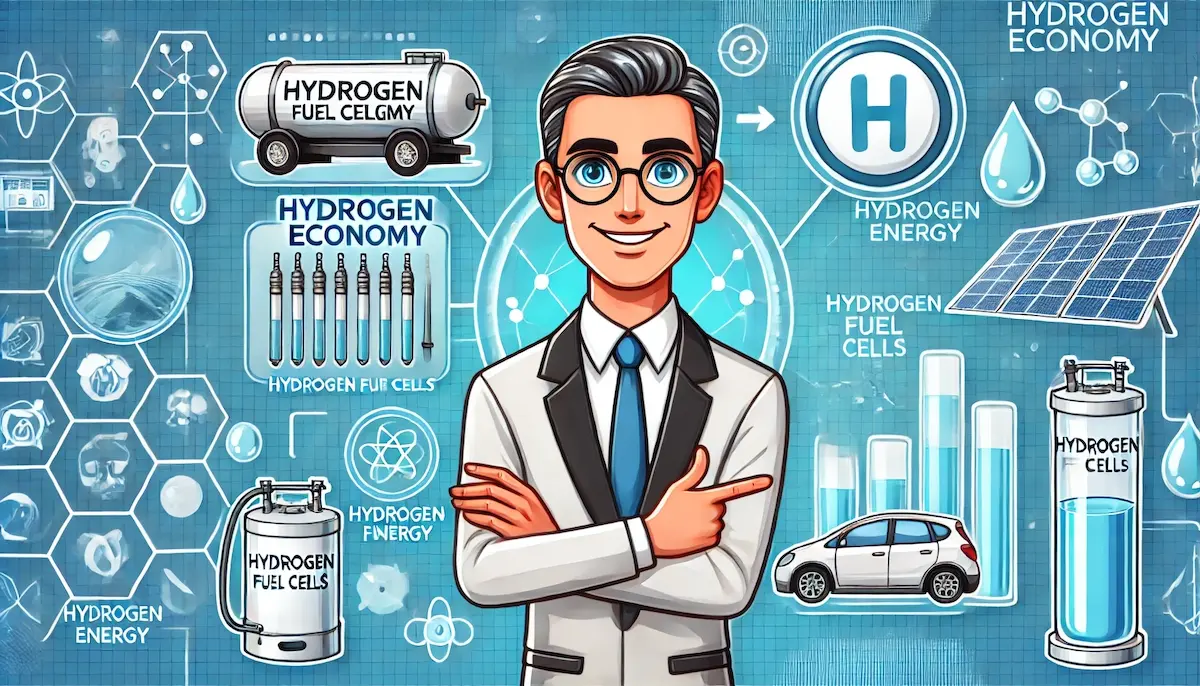The hydrogen economy is a concept that envisions hydrogen as a key energy carrier of the future, providing a clean and sustainable alternative to fossil fuels. This vision includes producing, storing, and utilizing hydrogen in a way that supports environmental goals and energy security.
What is Hydrogen?
Hydrogen is the most abundant element in the universe, found in water (H₂O), hydrocarbons, and other organic matter. It is colorless, odorless, and highly combustible, making it a versatile energy carrier. When used as a fuel, hydrogen produces only water vapor as a byproduct, which makes it an attractive option for reducing greenhouse gas emissions.
Production of Hydrogen
Hydrogen can be produced through various methods, each with its own environmental impact and efficiency:
- Steam Methane Reforming (SMR): This is the most common method, using natural gas to produce hydrogen. While cost-effective, it releases carbon dioxide, contributing to greenhouse gas emissions.
- Electrolysis: This process uses electricity to split water into hydrogen and oxygen. When powered by renewable energy sources like wind or solar, it produces green hydrogen, which is completely emission-free.
- Biomass Gasification: This involves converting organic materials into hydrogen, which can be renewable and carbon-neutral depending on the feedstock.
Hydrogen Storage and Distribution
Storing and transporting hydrogen presents challenges due to its low density and high flammability. Current methods include:
- Compressed Gas: Hydrogen can be stored in high-pressure tanks, similar to how natural gas is stored.
- Liquid Hydrogen: Cooling hydrogen to very low temperatures (-253°C) allows it to be stored as a liquid, but this requires significant energy input.
- Hydrogen Carriers: Compounds like ammonia or metal hydrides can store hydrogen in a more stable form, releasing it when needed.
Applications of Hydrogen
Hydrogen has a wide range of applications across various sectors:
- Transportation: Hydrogen fuel cells can power vehicles, from cars to buses and trains, offering a clean alternative to gasoline and diesel engines.
- Industry: Hydrogen is used in refining, fertilizer production, and various chemical processes. Switching to green hydrogen can significantly reduce industrial emissions.
- Power Generation: Hydrogen can be used in fuel cells to generate electricity, providing a backup power source or complementing intermittent renewable energy sources.
Benefits and Challenges
Benefits
- Environmental Impact: Hydrogen produces no carbon emissions when used, helping to combat climate change.
- Energy Security: Hydrogen can be produced from various domestic resources, reducing dependence on imported fuels.
- Versatility: Hydrogen can be used across multiple sectors, making it a flexible energy carrier.
Challenges
- Cost: Producing green hydrogen is currently more expensive than conventional methods, though costs are expected to decrease with technological advancements.
- Infrastructure: Developing the infrastructure for hydrogen production, storage, and distribution requires significant investment.
- Safety: Hydrogen’s flammability and the technical challenges of storage require robust safety measures.
The Future of Hydrogen Economy
The transition to a hydrogen economy is underway, driven by technological innovations, policy support, and growing environmental awareness. Countries and companies worldwide are investing in hydrogen projects, aiming to scale up production, reduce costs, and build a robust infrastructure. As these efforts progress, hydrogen is poised to play a crucial role in achieving a sustainable and carbon-neutral future.
Blockfine thanks you for reading and hopes you found this article helpful.
